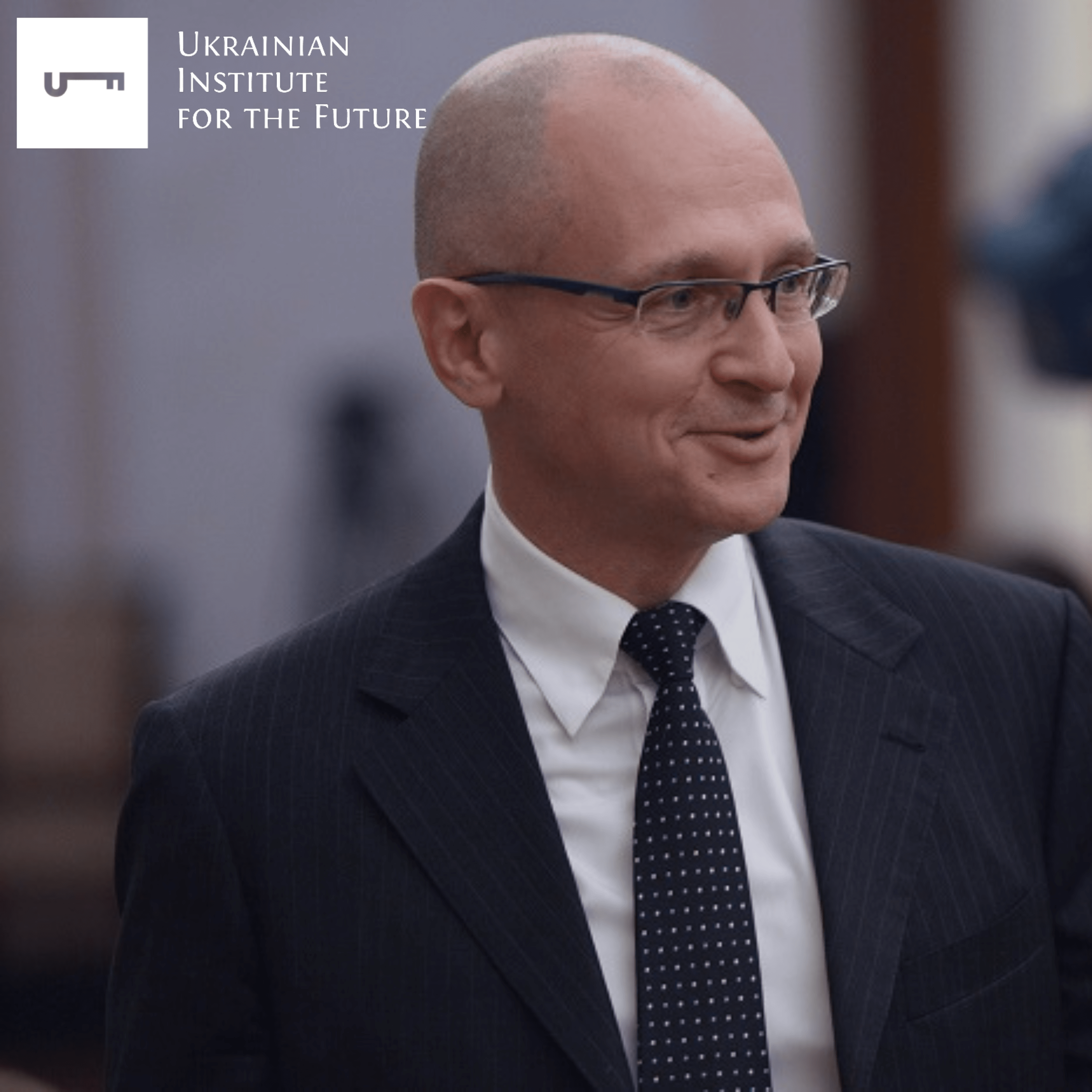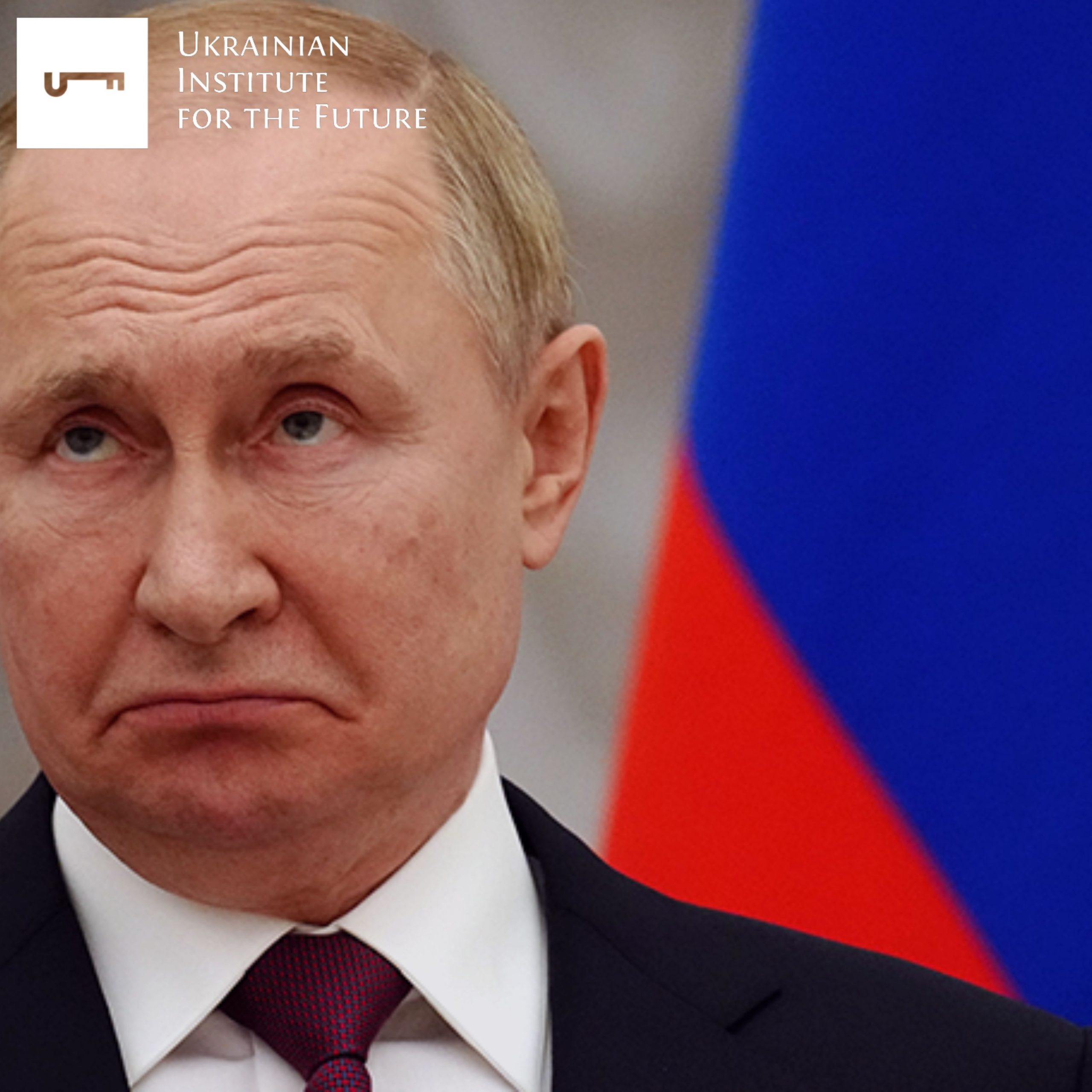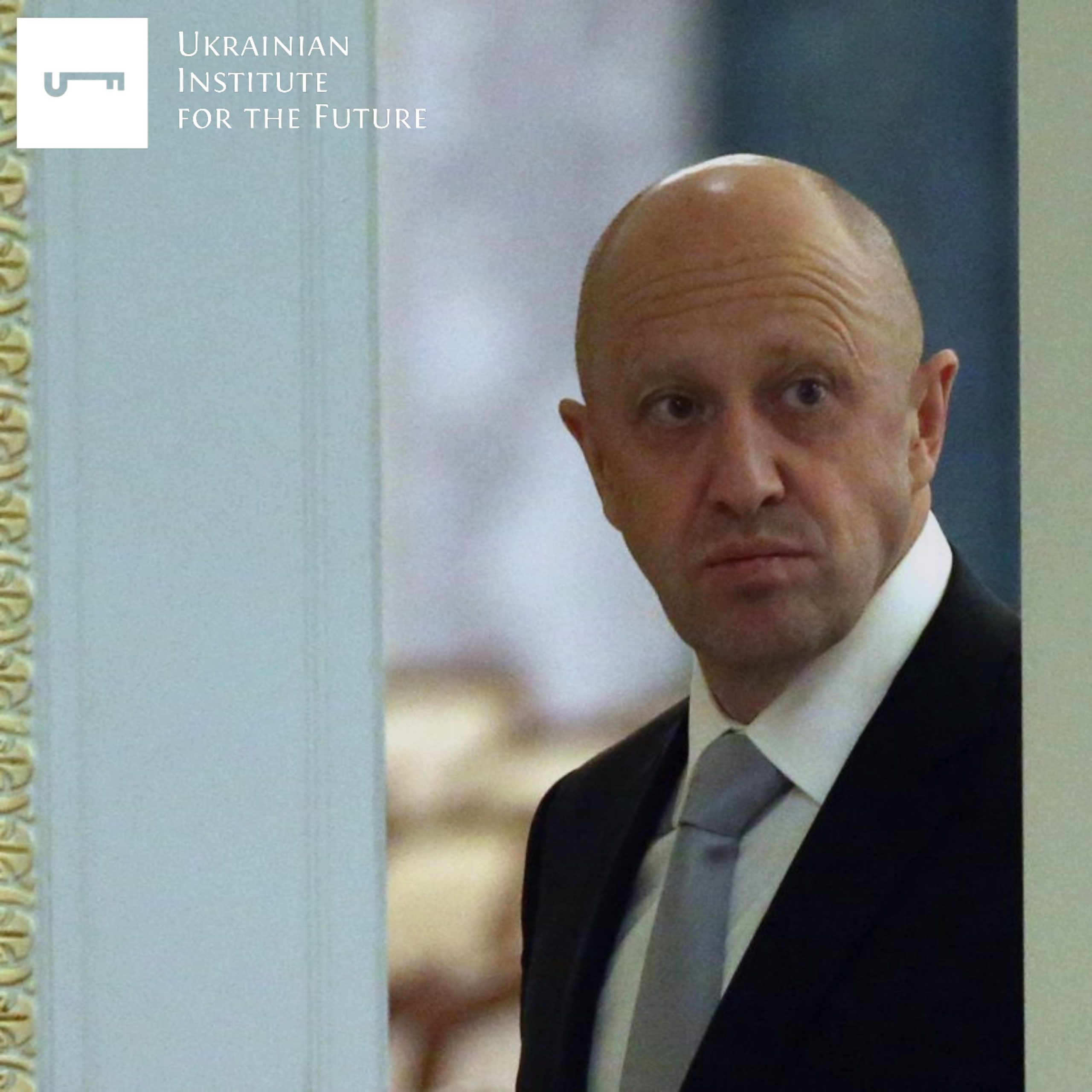2022 and the beginning of 2023 became a period of sharp strengthening of Sergei Kiriyenko and the group of “technocrats” (the Gref-Kiriyenko group). This “Kremlin Tower” is by no means a supporter of liberalism and the transformation of the Russian Federation into a predictable democratic state. The group defends the interests of the liberal economy, but at the same time, it is a consistent defender of the “Russia as a superpower” thesis. This “Kremlin Tower” stands for creating an “effective empire”.
Nevertheless, the strengthening of such a grouping during the war, when we expect the growth of the influence of the security forces, appears strange at first glance. Everything falls into place if we evaluate the reasons for technocrats’ sharp increase in “political weight” – a personnel policy. More precisely, creating a system for updating and training personnel in Putin’s Russia. Due to this, the group strengthens its current position and becomes one of the key ones in matters of the Russian Federation’s future.
Background
Putin’s system of governance was formed at the turn of 2004-2005. Then, the groups of influence or “Kremlin Towers” finally took shape, determining Russian politics. Due to this, Vladimir Putin could carry out the “castling” without risk to himself, ceding the post of the Russian president to Dmitry Medvedev for a while. But the period of Medvedev’s presidency demonstrated that in Russia, it is not the formal but the shadow system of power that is important. In the prime minister’s post, Putin continued to rule the country.
As time passes, Putin and his entourage are ageing along with him. The issue of personnel replacement is becoming more and more urgent every year. Indeed, in addition to a simple search for qualified executors and the renewal of the civil service apparatus, in the conditions of Putin’s Russia, the task was to maintain loyalty to Putin personally and to maintain the balance of power between the “Kremlin Towers” as much as possible.
The formal system of personnel training based on Russian specialized universities did not solve this problem for several reasons:
- Field orientation. People from “field-oriented” universities for one group or another in their further career, of course, would have lobbied for the interests of their “tower”.
- Lack of flexibility. Classical education programs did not have the flexibility for rapid transformation, considering the changing economic and political situation.
- The impossibility of total control. It is impossible to control ALL students of basic universities. Since the programs are the same for everyone, there is a risk that qualified specialists will appear both for the Putin system and his political opponents.
- Impossibility to cut off representatives of regional elites.
- No possibility of selection based on the criterion of practical results. A student is a student. It is difficult at this stage to assess their leadership potential and possible success in the future.
The issue of creating specialized “adult education” programs has become acute in Russian leadership as well as a vast network of selection of potential leaders who can be trained for the public administration system.
Representatives of the Rosneft-Lukoil group were among the first to respond to the request. Sechin and Alekperov founded NGOs at their companies that sought and supported public initiatives and trained leaders. However, this program remained a program aimed at the regions necessary for Rosneft and did not move to the level of personnel reserve training at the federal level.
Gazprom and Novatek tried to create similar programs. They had the same results: personnel for themselves, influence in the base regions, and failure at the federal level.
The Chemezov group was one of the last ones to try to sponsor leadership courses and competitions. But it achieved undesirable results for the Kremlin: some of the “graduates” of the Rostech programs became activists of the Russian opposition. As a result, the program was redesigned, and today, it is the Rostech Academy [1], which trains managers and managers exclusively for internal needs.
The only group that achieved specific results by 2015-2016 was the Gref-Kiriyenko group, or, as it can also be called, the group of “technocrats”. Courses for young business people and support for start-ups, founded by Sberbank, unexpectedly (or expectedly) gave accurate results in the arrival of young qualified specialists to the civil service. Methodological circles for regional elites and the leadership of industrial parks made it possible to discuss the possibility of forming integral groups of managers in individual subjects of the Federation.
Considering that the Kovalchuks were the guardians of the “technocrats” (until 2015, this group could not be fully called the “Kremlin Tower”, but was only a project of the Bank Rossiya group), it is not surprising that Putin was offered (and he agreed) to take over the basis of the new personnel training system was developed by Sberbank and methodologists close to Kiriyenko.
Creation of the system
The basis for creating a personnel system was the program “Russia – a country of opportunities” (RSV)[2]. In 2018, it received the support of Vladimir Putin and was transformed into an autonomous non-profit organization (ANO) by decree of the President of the Russian Federation (!). It almost immediately received licenses to conduct educational activities in Russia and partial public funding. Since 2018, RSV has referred to itself as the “presidential program”.
The Supervisory Board of the newly created ANO is almost entirely composed of top members of the “technocrats” group: Gref, Kirienko, Kostyukov, Fursenko, Golikova, and Komissarov. Although the “significance” here is very arbitrary since the minimum “threshold” for joining the Supervisory Board is a position equivalent to the Deputy Minister of the Russian Federation. Vladimir Putin personally heads the Supervisory Board.
The program aims to search for and train personnel for public service. There are several levels of participation (and preparation) depending on the age and experience of the candidate. The minimum (or lower) level is working with high school students.
Apart from these are:
- Student programs;
- Programs for leaders of public associations, journalists;
- Political programs for those who aspire to a career in public politics;
- Courses for managers of various levels: regional (city, region) and federal.
The work is based on selecting promising people from a sufficiently large number of candidates.
The training system includes educational courses combined with grant competitions. That is, the participant receives some knowledge, tries to “protect” his idea, and receives money (and administrative support) for its implementation.
To eliminate the factor of surprise and control over the participants of the competitions, a mentoring mechanism is provided in which each of the successful graduates receives a “curator”, who, on the one hand, helps (including offering consultants, assistants), and on the other hand, controls the work of the “graduate”.
The introductory course of “Russia – a country of opportunities” project is the Leaders of Russia program [3]. Its supervisory board includes two advisers to Putin, Sozhenitsyn’s daughter (and head of a nominal fund), Mikhail Shvydkoy (representative of the President of the Russian Federation for international cultural cooperation), Remchukov (Nezavisimaya Gazeta), Gusman (ITAR-TASS), and others.
The program is designed to train specialists for the public administration system of the Russian Federation and personnel who aspire to build a career in neighboring countries. That is why the program (like other RSV programs) is also open to “citizens of the former USSR”. There were and are participants from Belarus, Kazakhstan, Armenia, Georgia, and even Ukraine (occupied and non-occupied parts).
The preparation consists of an educational part (4-8 intensive courses, depending on the direction) and a competition to obtain funding for your ideas. And, of course, the mentioned mentoring in which Russian managers of a fairly high-rank act as curators.
It is worth noting that the “Russia – a country of opportunities” program grew significantly in 2021-2022 with the conduction of “workshops” in the areas and semi-autonomous programs aimed at a relatively narrow area. For example, a management workshop, a new media workshop, etc.
Communication with graduates and successful competition finalists is carried out through the functioning of the “Elbrus club” – the club of program graduates.
Finally, from 2022, the “recruitment agency” [4] of the RSV program began its operations. Her specialization is searching and selecting candidates for federal ministries and departments.
Financing of the programs of the ANO “Russia – a country of opportunities” is carried out from the budget of the Russian Federation. But only partially. Approximately 40% of the money comes from external sources, which are the business structures of the Kremlin Towers. First, this is the Sber Group, VK Group, Bank of Russia, and large Russian companies, including non-state ones, which “cannot refuse” a request for support for young talents. This approach makes it possible to finance the projects of “graduates” of the Leaders of Russia course with budgets of several tens of millions of rubles.
Finally, the education (courses and other activities) within the framework of ANO “RSV” is free for both citizens of the Russian Federation and foreigners.
The second important area of work is the further development of the methodological circles that worked under the leadership of Kiriyenko with local elites. Today, the basic structure is the “infrastructure leaders” methodological program [5]. Its students (and graduates) are middle-level managers of the governments of the subjects of the Federation. As declared in the regulation of the program, its goal is to create effective teams of regional managers.
In fact, Kiriyenko creates “imperceptible” from the outside groups of managers who enter the local economy from posts from the head of the department of the regional ministry to the post of deputy minister. It means they gain control over the processes, leaving political risks to those formally occupying higher positions.
Finally, the key asset. Courses after diploma education on the basis of the Russian Academy of National Economy and Public Service. From 2018 to 2021, more than ten educational programs for government officials at various levels were created based on the RANEPA (Russian Presidential Academy of National Economy and Public Administration). The key one is the so-called “School of Governors”, which has taught more than 160 people. At the same time, German Gref personally selected candidates for the first student groups of the “school”.
However, there was one drawback in such a system – all the courses created (or initiated) by “technocrats” were based on a “foreign” university – there was no complete control over the RANEPA. The problem was resolved in early 2023 when Andrey Komissarov, who is a key manager of the Leaders of Russia program, became the acting rector of the academy [6].
Where do the candidates come from?
Educational programs are not an unconditional guarantee of effective personnel selection. This requires a “field” from which a wide range of candidates can be selected.
The selection system is built on several levels:
- Charitable foundations that operate in Russia. We are talking about Russian state, corporate, and private non-state funds. The supervisory board or the boards of RSV program partners include the heads of most of them. These, of course, can offer “promising” candidates.
- Remains of corporate leadership programs. Since support and leadership development programs have retained most of the Kremlin Towers, they need to ensure the continued growth of their protégés. Therefore, they recommend candidates.
- Regional groups, governments, and businesses. Mainly, these come from the regions where methodological circles operate (or graduates of such courses work)
- A network of public online basic courses also makes it possible to find suitable candidates.
- Recommendations from the nomenclature. It is logical that managers who want to grow in their career track check for the emergence of such programs and the sharp career rise of their graduates. Therefore, they either go there themselves or offer their candidates.
- Party sieve. Within the political parties in the Russian Federation, there is a system of training leaders, but since the parties are rather screens for the real subjects of Russian politics, it is quite reasonable that others quietly take their “workforce”.
- Last but not least, open recruitment.
There is also another direction – the search for foreigners. In this case, coordinating with cross-border cooperation programs supervised by Dmitry Kozak and with Russian funds operating abroad is essential. It is they who are the sieve for the selection of “promising” candidates who are offered to participate in RSV programs.
Visible results
Governors or how to gain control of most regions
Since 2013, Russia has been going through the third stage of changing the region’s leadership. In more detail, the scheme for turning the “Federation” into a country of total control from the center is described in the report of the Institute for the Future “Kremlin Towers” [7]. The brief essence of Putin’s policy is cutting off regional elites from decision-making at the federal level and even from control over their own regions.
As part of this policy, there is a systematic personnel change with the sending of “paratroopers” – people who do not have connections (or were broken off while making a career in Moscow) – as leaders of the regions. The algorithm of actions can be described in three moves:
- The old governor either resigns (at the request) or is removed from his post. This happens 3-6 months before the elections.
- After that, Putin appoints the “acting” governor.
- And, finally, at the next election, the “acting” governor appointee predictably “wins” and gets rid of the prefix “acting”.
The role of the Gref-Kiriyenko personnel system in selecting and training those very acting has become dominant in recent years. Since 2018 (the moment the “School of Governors” was launched), only two (!) candidates have been nominated for local elections who did not first go through the “School of Governors”. Considering the appointments of the acting leaders of the Smolensk region and Chukotka, the number of subjects of the Federation controlled by school graduates reached 47 (forty-seven).
But here, recalling the “methodical program” mentioned above is appropriate. In six more, and most importantly, resource (!) regions, the local government’s core comprises its graduates and experts.
Today it can be argued that “technocrats” control most Russian regions. For the rest of the groups, either the complex subjects of the Federation (controlled by the security forces) or the regions that Sechin personally takes care of and where local groups loyal to the center are in charge, are left for an open candidate.
Since 2021, the regional control system has been launched at the level of municipalities. Graduates of the “Leaders of Russia” program began actively being nominated as candidates for city mayors. By February 2023, 8 people had already won a seat through elections, in which traditionally there was a struggle between regional groups. But now the “Kremlin Tower” is starting to descend to this level.
At last, there are a few questions regarding personnel at the federal level. Sergey Kiriyenko is the curator of management and “reconstruction” programs in the occupied territories. As Russian analysts who assess the reshuffle in the highest echelons of power note, “career today is made through Ukraine.” Course graduates are sent to manage territories or individual projects in the occupied parts of Ukraine. After 3-4 months, promising personnel return to Moscow, having in their resume an important and necessary note about work in the “acquired territories”. Public leaders are tied to programs of “help”, “interaction”, and “informing”. A reasonably large number of Ukrainian citizens inclined to cooperate with the occupiers are also conducted through the courses of the personnel selection system. After all, the notorious retraining program for Ukrainian teachers was financed by cross-border cooperation programs (Kozak) and supervised by the “Russia – a country of opportunities” project (Komissarov).
Conclusions
One can point out the creation of the system for searching for and training a new generation of managers in Russia. It is supervised by formally “liberal” managers from Putin’s entourage. This expands the search field for candidates and includes even those who are skeptical, for example, about the security forces or people like Sechin. At the same time, the control and loyalty of the program graduates are ensured.
Since the personnel issue is given under the control of one group, the “technocrats” becomes a key “Kremlin tower” contender for a sharp increase in case of a redistribution of power in Russia. It will intensify even if the current system is maintained since the key persons of the other groups will age, and there will be no adequate replacement for them inside their “tower”.
For Ukraine, this group is dangerous because it is more dynamic, young, and “handshaken” in the West. At the same time, it stands on the thesis of building an “effective superpower”. That is, the same empire, only more rational than modern Putin’s Russia. Of particular danger to neighboring states is the orientation of the training system to the external field. In fact, the Russian Federation trains managers in (for) neighbouring states. But these people will be loyal not to their “Motherland” but to one of the “Kremlin Towers”.
[1] https://rostec.academy/
[2] https://rsv.ru/
[3] https://leadersofrussia.rf/supervisors
[4] https://rsv.ru/competitions/internship/1/392/
[5] https://leadprom.ru/#rec324219600
[6] https://www.gazeta.ru/social/news/2023/01/23/19555333.shtml
[7] https://uifuture.org/publications/vezhi-kremlya-hto-bude-dilyty-spadok-putina/




